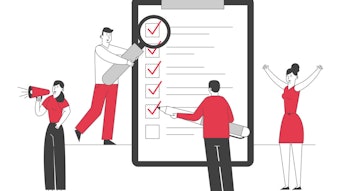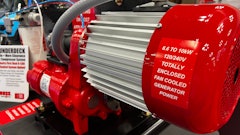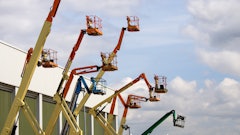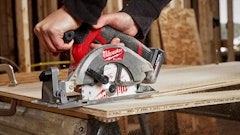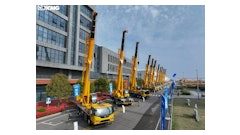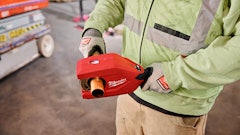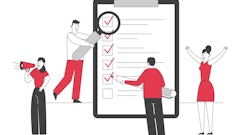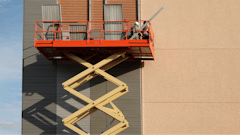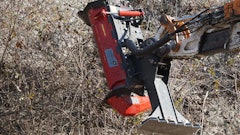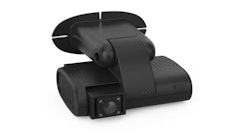Who said that — "Be prepared"? Come to think of it, if my memory serves me right, it's the motto of the Boy Scouts of America. I think that's right. If not, I am sure you will correct me.
Be prepared. Not a bad policy to follow whether you have been a Boy Scout or not. After all, it's always best to have a back-up plan ready to transition you into another plan of attack.
The transition plan we can discuss relative to the rental business would be a plan to move from a full economic upswing to more of a mid-cycle environment. It's no secret that the industry has been doing well the past four or five years. Many of you have experienced double-digit growth and have had the opportunity to upgrade your rental fleets. But as we all know, all good things have to come to an end and this economy is no different.
There might not be much to cry about, however, depending on where you do business and who you do business with. Many markets you serve look to remain strong for the rest of the decade. If, however, you are in the housing sector, getting out your Boy Scout uniform might be in order.
The key to all of this, assuming no major catastrophes, is interest rates and whether manufacturers can keep their inventory levels under control. If rates soften and inventory levels remain reasonable, it's very possible to see single-digit increases for the next few years. In short, this economy has a lot going for it which should carry the industrial and commercial sectors and remain positive even if housing slows to below expectations. And let's not forget about road building, which should also remain strong.
Industry statistics indicate average equipment lives of about 36 months — a nice mix of late model equipment. Having newer equipment in the fleet is great in terms of customer acceptance and lower maintenance costs, but that also means it's not fully paid for. Keeping in mind how much cash flow is affected when utilization falls, it might be time to pull out the budget and cash flow projections from your desk to see how the rest of the year will develop and how much you have on order for the fleet.
One thing you don't want to do is rely on double-digit growth for 2007 unless you are pretty darn sure it's there. And if the growth is not there, you can be pretty sure rate pressure will follow. So now the question becomes how you protect your cash flow going forward without pulling back so far you take yourself out of the market. We are in mid-cycle and we need a business plan going forward that relates to that cycle.
The plan you develop should have some of the following components:
Get your budget for the next 12 months on the table using a sensitivity analysis of plus or minus 20 percent. How do the profits look? How about cash flow? In the rental business, you really need to know these answers.
Take a look at your customers. Who can you lock in some longer-term arrangements with? Who is likely to get the bigger jobs in your territory? Get out there to talk to these folks to ensure you will get the business. Work with them to make it a win-win scenario.
Review the personnel list. Make up a priority list for all departments so if you have to make any changes you will know what to do. Be especially careful with sales personnel so they do not have your company data on their computer or other electronic device.
Look at your expenses because you might have gotten fat over the past four years. Have your accounting staff start reviewing the suspect areas and report back to you.
Have a price sheet configured to adjust pricing as time utilization changes. If time utilization goes down for two months you automatically reduce the rental rate to encourage customers to take the unit.
Review the rental fleet and related note payable schedules to determine which units you need to sell off without taking a cash hit. If you have suspect units now, you might want to sell them before used prices soften. If possible, you want to keep units that are paid off or close to being paid off if that makes sense in the overall scheme of things.
It's time to hit your bankers to refinance to reduce the monthly nut. They have plenty of money to throw around and will deal if they have to.
As you make changes, update your projections, especially your cash projection, to see where you're at.
As you know by now, the housing correction is worse than expected. And the auction houses are starting see a softening in used equipment prices. So while we are
far from pushing the panic button, some good-old-fashioned management is required
to check on your progress and where you are going.
I guess the point of all this is a reminder to "BE PREPARED" and not get in over your head. Have a transition plan ready to put your fleet where it needs to be if the markets soften in your area. Hey, you can always buy more equipment if you need it!
Garry Bartecki is director of dealer/distributor services at BDO Seidman LLP of Chicago, as well as consultant to Associated Equipment Distributors (AED). He has also worked as an independent CPA and consultant to equipment dealers. He can be reached by phone at (312) 616-4677 or email at [email protected].

